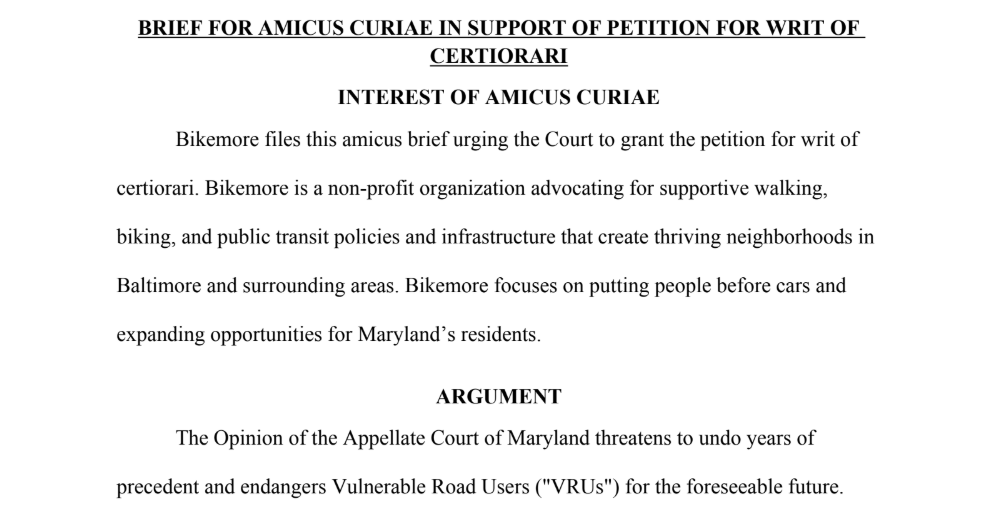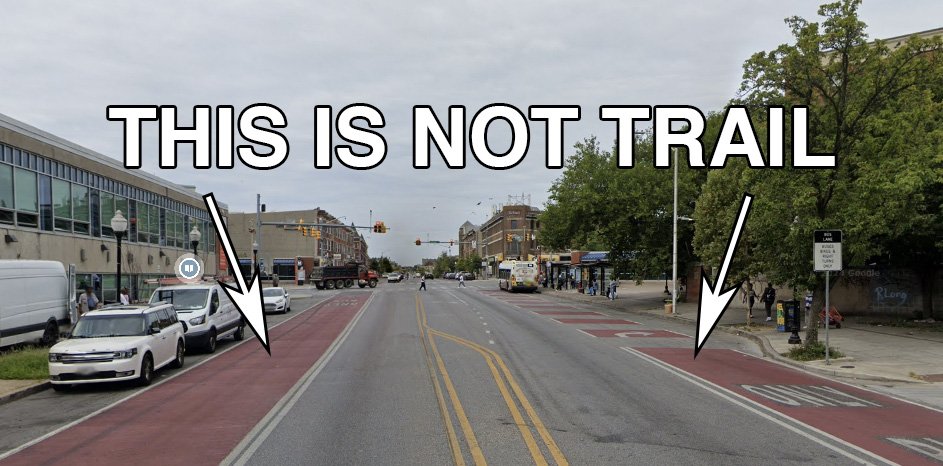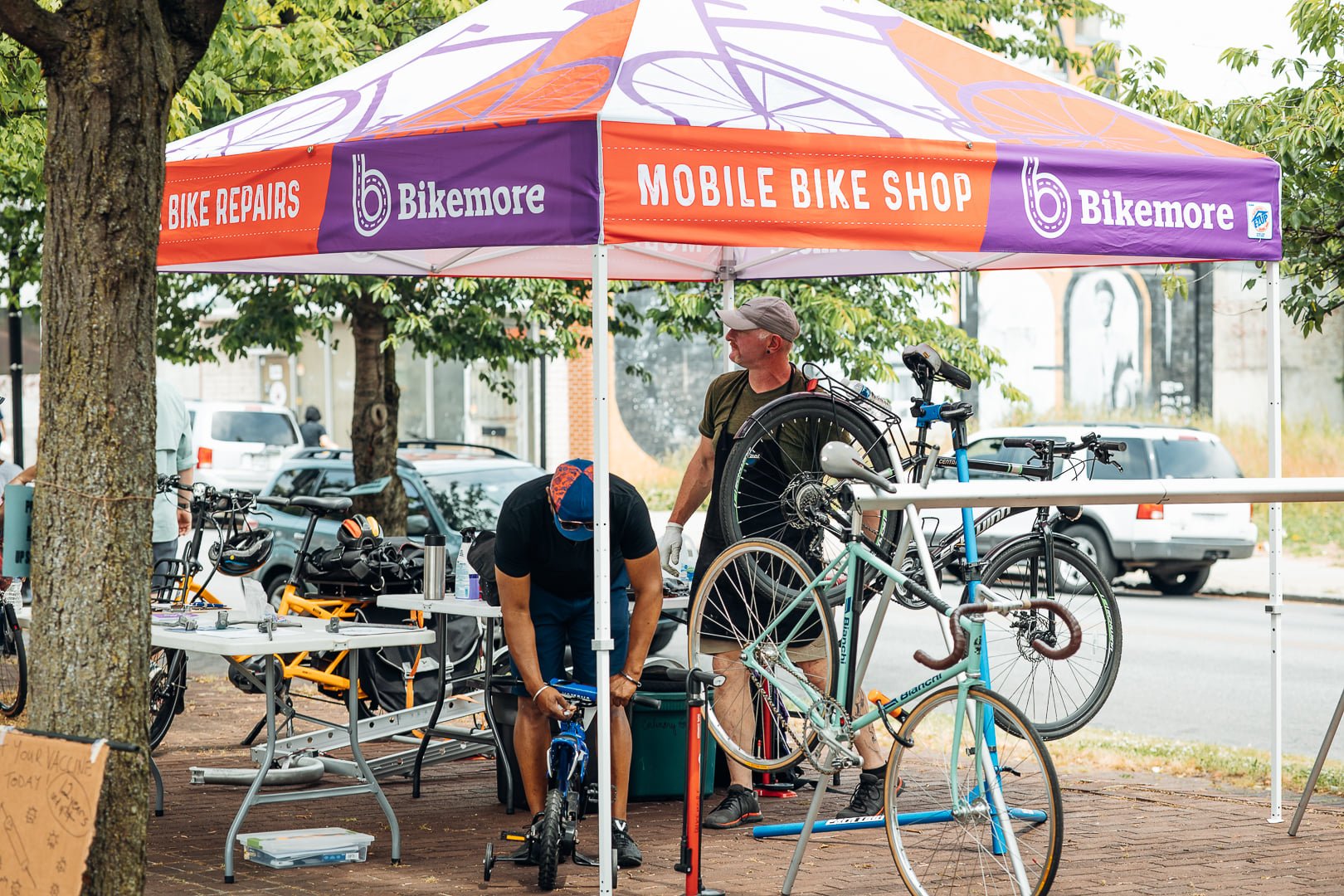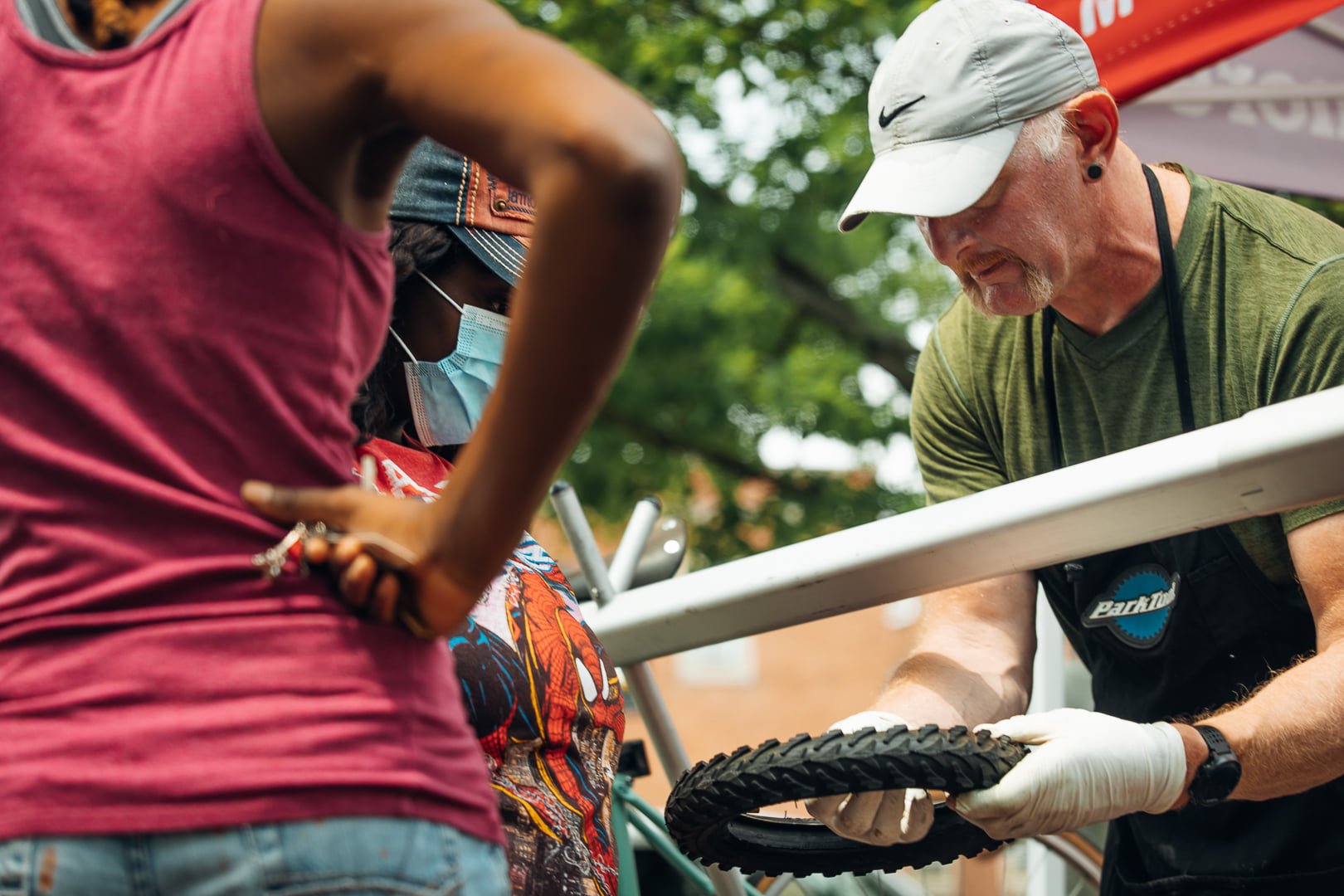For decades, Maryland's Boulevard Rule has played a vital role in protecting pedestrians and cyclists by reinforcing their right-of-way when crossing or entering major roads. But a recent appellate court decision (PDF) threatens to upend this longstanding precedent, opening the door for drivers to shift blame onto vulnerable road users, even when those individuals were lawfully asserting their rights.
This shift has serious implications. It risks making our legal system more hostile to the very people Maryland is trying to encourage to walk and bike through increased investments in complete streets infrastructure. If pedestrians and cyclists cannot count on legal protections when harmed by negligent drivers, the promise of safe streets remains out of reach.
That's why Bikemore is standing alongside Delegate Embry to advocate for a legislative fix, specifically, a contributory negligence carveout for vulnerable road users. And it's also why we filed an amicus brief urging the Maryland Supreme Court to hear the appeal filed by the legal team at Kramon & Graham.
Kramon & Graham's attorneys are leading a vital fight to restore the Boulevard Rule and ensure it continues to serve as a meaningful safeguard for people walking and biking. Their appeal asks the Maryland Supreme Court to reverse the lower court's ruling and reaffirm the principle that those entering a boulevard must yield to traffic, including pedestrians and cyclists, already in the intersection. We are proud to support this effort through our amicus filing, which underscores the broader public policy implications and the real-world risks that vulnerable road users face every day.
This is a crucial moment. As Maryland works to reduce traffic violence and make our roads safer for all, the law must reflect the reality on the ground: people outside of cars face disproportionate danger and deserve legal protections that recognize that imbalance.
To better understand how this legal precedent affects injury claims and accountability, we recommend this excellent explainer from Bikemore board chair Juan Carlos, an attorney at Saiontz & Kirk, P.A.
We believe that legal doctrine like the Boulevard Rule must evolve to protect—not endanger—those who are most vulnerable when traveling along our streets and roads. They deserve nothing less.
Read the full brief below:







